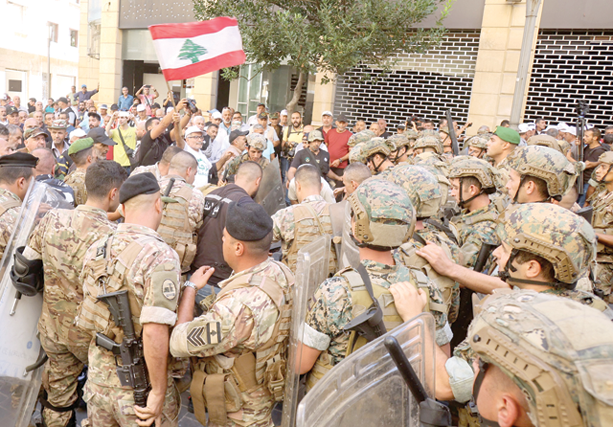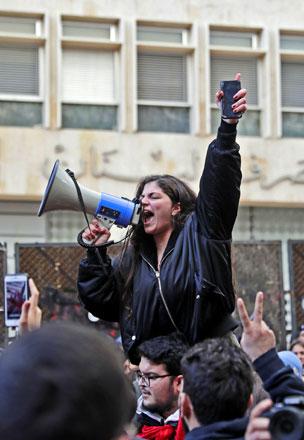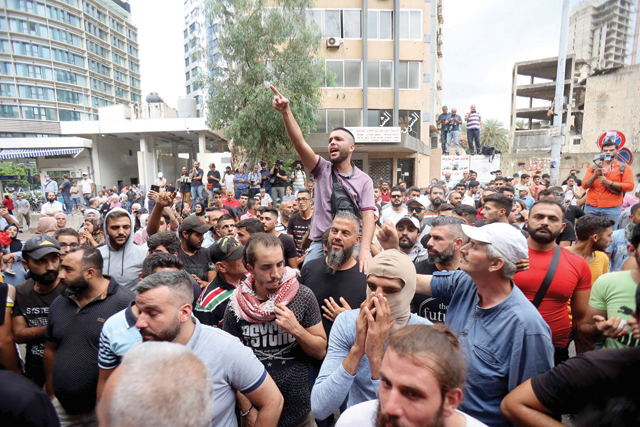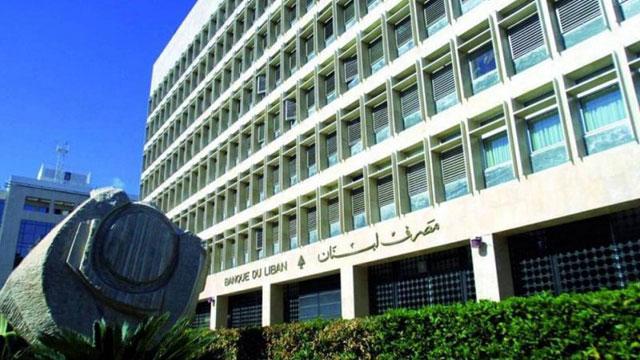You are here
'I need my salary': Anger as Lebanese banks reopen
By AFP - Sep 27,2022 - Last updated at Sep 27,2022

Lebanese soldiers clash with retired military personnel as they try to break into the parliament in Beirut on Monday, during a session to approve the 2022 budget (AFP photo)
BEIRUT — Depositors scuffled and long lines formed at Lebanese banks on Monday as they partially reopened after a week-long closure following a slew of heists by customers desperate to access their money.
But most banks remained shut, welcoming only a handful of depositors on appointment, and there was anger from those seeking to withdraw frozen funds desperately needed to weather a crushing economic crisis.
At a closed Beirut branch of Fransabank, dozens of soldiers, internal security forces members and customers had queued for hours.
"I don't care about anything, I need my salary," one ISF member yelled from behind the locked gates.
Banks started imposing draconian restrictions on withdrawals after Lebanon’s economy collapsed in 2019.
Since then, the Lebanese pound has lost more than 95 per cent of its market value, meaning public sector salaries have slumped to as low as $40 a month.
Earlier this month five banks were stormed in one day with depositors seeking to unlock frozen savings, after a string of similar holdups in past weeks.
The Lebanese banks association said on Sunday that banks will reopen in a limited capacity to businesses, educational institutions and hospitals. Many banks have also now hired security guards.
ATMs will be available “for everyone else”, to allow public and private sector institutions to transfer salaries, they said.
Georges Hajj of Lebanon’s bank employees union said that some branches did not reopen, but those that did increased security.
“This week is a test to see how things will unfold,” he said.
In the southern city of Sidon, heavy security has been deployed at several banks, an AFP correspondent reported, after a security forces member tried to get into a BLOM bank branch by force to retrieve his salary.
In the queue outside Fransabank, Yolla Sawan, a 67-year-old retired teacher, waited for her appointment, hoping to withdraw roughly $130, her bank’s maximum monthly allowance.
“I don’t know what will happen [if I can’t withdraw],” she said in a soft voice.
Near the bank, more servicemen and ordinary depositors queued in front of an ATM which was empty of any cash.
One ISF member, who declined to give his name, said he had been waiting for two hours to withdraw his meagre salary.
“I have nothing to say, I am drained,” he said.
Related Articles
BEIRUT — Inside a Lebanese bank, a woman screams for her salary.
BEIRUT — The Lebanese pound fell to a new low against the US dollar on the black market on Monday as a severe economic downturn has sparked
BEIRUT — A Lebanese prosecutor on Thursday ordered an asset freeze for 20 banks and their board directors, two judicial sources said, in the


















